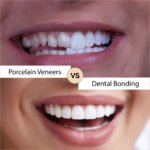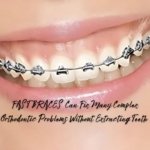
Dec 12, 2023
Are you tired of your temporary or removable dentures? Screw-in dentures can be a life-changing experience for you. It is a great solution for patients who have lost their upper or lower teeth in an accident or injury. Under this permanent replacement solution, implants are surgically placed in your jawbone.
If you are struggling with gum infections due to removable dentures, you can opt for permanent dentures. In this comprehensive guide, you will find everything you need to know about screw-in dentures’ cost, their benefits, cons, and more.
Screw-retained dentures are prostheses that have replacement teeth mounted on a metal base and covered with pink resin to fit perfectly over your gums. Dentists secure them in place using artificial roots in the jawbone, known as dental implants. They function like natural teeth and provide the same strength, which every patient can enjoy eating their favorite food without worry.
If you have missing teeth or full dentures, screw-in implants are long-lasting solutions. They offer unparalleled support, comfort, and aesthetics.
A dentist may suggest fixed implants if anyone is missing most or complete teeth. If you are missing teeth in a sporadic area, you can benefit from a screw-in partial denture. Your healthcare provider can tell which dental procedure is best for you.
Removable and screw-in dentures are two distinct options for individuals seeking dental prosthetics. Each has its own set of advantages and considerations. Clasps or adhesives secure removable dentures. They are affordable and easy to clean. They are a popular choice for those on a budget, providing a functional solution for replacing missing teeth. However, some users may find them less stable and occasionally experience discomfort.
On the other hand, screw-in dentures, also known as implant-supported dentures, offer a more permanent and secure solution. Dentists surgically attach them to dental implants. They provide a natural teeth-like feel and function. It promotes better oral health and prevents bone loss. Despite their higher upfront cost, screw-in dentures often provide enhanced stability, comfort, and durability. It makes them a preferred choice for individuals seeking a long-term, reliable tooth replacement option. The decision between removable and screw-in dentures depends on individual preferences, lifestyle, budget, and your healthcare provider’s recommendation.

The process of getting screw-in dentures typically involves multiple stages spread over several months. It begins with a comprehensive dental evaluation, including imaging like X-rays or 3D scans to assess bone density. If the jawbone is strong enough, the dentist will surgically place titanium implants into the bone. After placement, a healing period of 3 to 6 months is usually required to allow the bone to fuse with the implants—a process called osseointegration. Temporary teeth may be worn during this time. Once healing is complete, custom abutments and the final denture prosthesis are attached. Patients generally report minimal pain during the procedure thanks to local anesthesia or sedation options. Post-surgical discomfort is usually manageable with pain medication and proper aftercare.
Screw-in dentures are also known as implant-supported dentures or overdentures. They have gained significant popularity in the field of dentistry due to the numerous benefits they offer compared to traditional removable dentures. These innovative dental implants provide a more stable and secure solution for individuals who have missing teeth. Here are some key benefits of screw-in dentures:
One of the primary advantages of screw-in dentures is their superior stability. Unlike traditional dentures that rely on adhesive for support, screw-in dentures are securely planted to dental implants. These implants are surgically placed into the jawbone, providing a stable foundation for the dentures. It allows individuals to eat, speak, and smile with confidence.
Another benefit of screw-in dentures provide a natural feel and appearance that contribute to the overall satisfaction and confidence of individuals with missing teeth.
The materials used in screw-in dentures are durable and long-lasting. With proper care and regular dental check-ups, these dentures can provide a reliable and enduring solution for individuals with missing teeth. Its durability contributes to its cost-effectiveness over the long term.
It is important to note that your insurance policy may or may not cover snap-in dentures. It can play a significant role in your decision-making process if you are on a tight budget. You can request a quote from your dentist to know the exact screw-in dentures cost. However, as a general estimate, a single implant procedure with dentures can cost between $3,000 and $6,000. The final cost can vary based on various factors, such as the number of implants required and your healthcare provider.
Screw-in dentures, when properly placed and well cared for, can last many years—often 10 to 20 years or longer. The dental implants themselves, which are titanium posts surgically embedded into the jawbone, can last a lifetime with good oral hygiene and regular dental visits. The denture portion (the prosthetic teeth) may require maintenance or replacement after 10–15 years due to normal wear, changes in gum tissue, or other factors. Longevity depends on several variables, including oral hygiene habits, bone health, lifestyle choices like smoking, and regular check-ups with your dentist. Patients who avoid tobacco, maintain a healthy diet, and follow care guidelines typically enjoy long-term success with minimal complications.
Regardless of the type of dental implant, proper care is essential. If you have removable dentures, you must clean them after every meal and before going to bed. Gently clean the o-rings to remove food particles and debris. It ensures proper snap-in of the denture.
Patients experience swelling or soreness as a result of improper care. In the worst-case scenario, they could end up with an infection. People with implant-supported dentures can use Waterpik with brushing to remove any food particles close to the gumline.
Screw-in dentures or permanent dental implants in Allen, TX offer a host of benefits, requiring specific care practices to ensure their longevity. Many individuals find the long-term advantages and improved quality of life to be well worth the expense. Consulting with a local dentist can provide personalized information and guidance based on individual needs and circumstances.


Stop Waiting for Pain: Why Prevention Beats Costly Dental Treatments

Pulpotomy vs. Pulpectomy: What’s the Difference



| M | T | W | T | F | S | S |
|---|---|---|---|---|---|---|
| 1 | 2 | 3 | 4 | |||
| 5 | 6 | 7 | 8 | 9 | 10 | 11 |
| 12 | 13 | 14 | 15 | 16 | 17 | 18 |
| 19 | 20 | 21 | 22 | 23 | 24 | 25 |
| 26 | 27 | 28 | 29 | 30 | 31 | |
